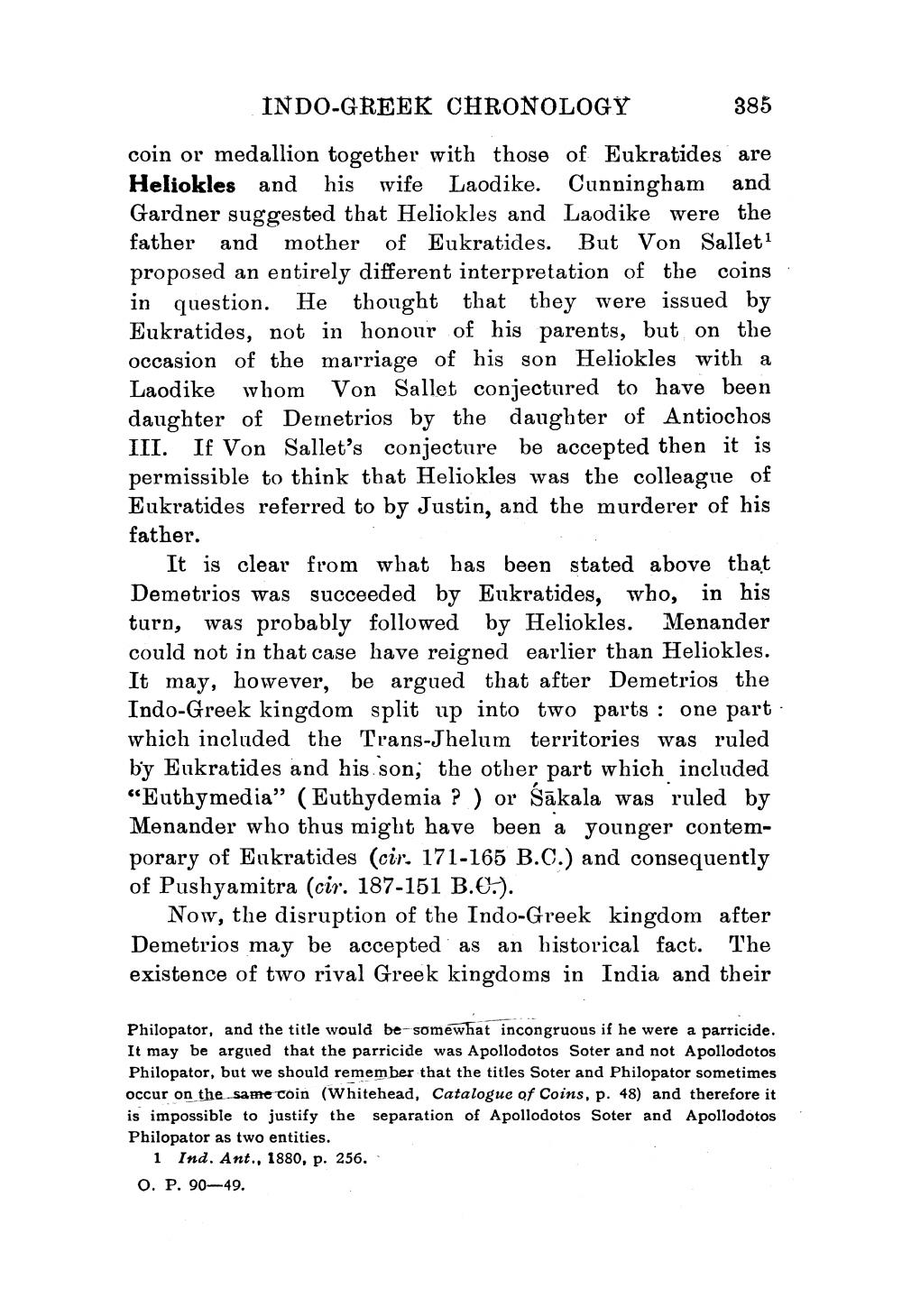________________
INDO-GREEK CHRONOLOGY
385 coin or medallion together with those of Eukratides are Heliokles and his wife Laodike. Cunningham and Gardner suggested that Heliokles and Laodike were the father and mother of Eukratides. But Von Sallet1 proposed an entirely different interpretation of the coins in question. He thought that they were issued by Eukratides, not in honour of his parents, but on the occasion of the marriage of his son Heliokles with a Laodike whom Von Sallet conjectured to have been daughter of Demetrios by the daughter of Antiochos III. If Von Sallet's conjecture be accepted then it is permissible to think that Heliokles was the colleague of Eukratides referred to by Justin, and the murderer of his father.
It is clear from what has been stated above that Demetrios was succeeded by Eukratides, who, in his turn, was probably followed by Heliokles. Menander could not in that case have reigned earlier than Heliokles. It may, however, be argued that after Demetrios the Indo-Greek kingdom split up into two parts: one part which included the Trans-Jhelum territories was ruled by Eukratides and his son, the other part which included “Euthymedia” (Euthydemia ? ) or Sākala was ruled by Menander who thus might have been a younger contemporary of Eukratides (cir. 171-165 B.C.) and consequently of Pushyamitra (cir. 187-151 B.€.).
Now, the disruption of the Indo-Greek kingdom after Demetrios may be accepted as an historical fact. The existence of two rival Greek kingdoms in India and their
Philopator, and the title would be somewhat incongruous if he were a parricide. It may be argued that the parricide was Apollodotos Soter and not Apollodotos Philopator, but we should remember that the titles Soter and Philopator sometimes occur on the same coin (Whitehead, Catalogue of Coins, p. 48) and therefore it is impossible to justify the separation of Apollodotos Soter and Apollodotos Philopator as two entities.
1 Ind. Ant., 1880, p. 256. 0. P. 90-49.




